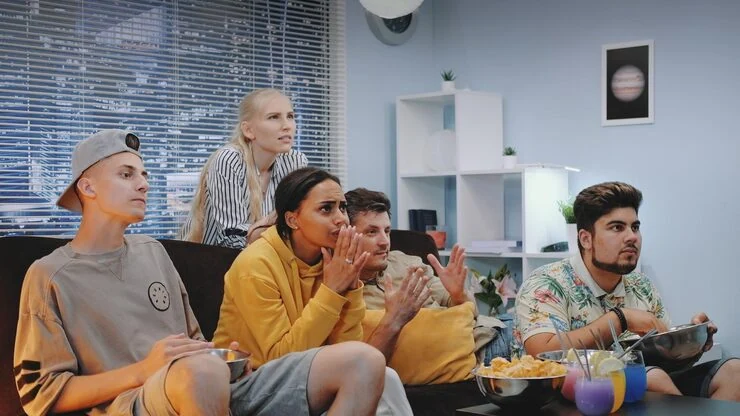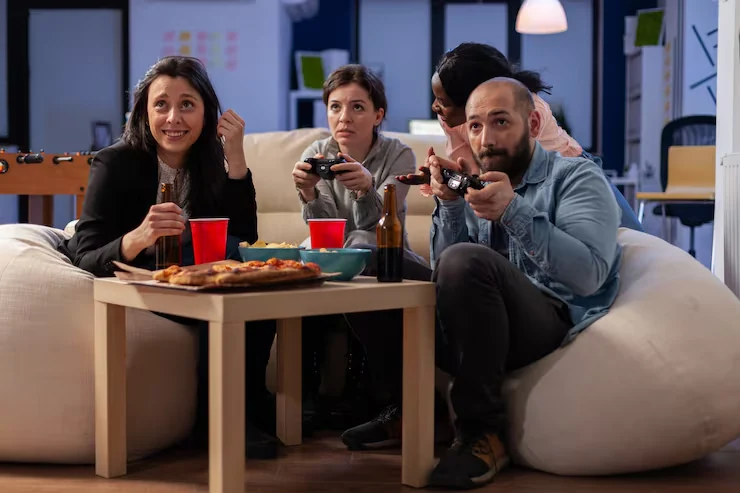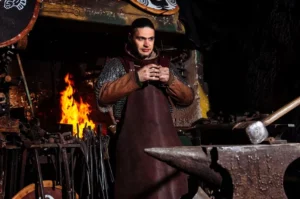The Return of a Classic, Rebuilt for PS5
When Star Wars: Knights of the Old Republic released in 2003, it raised the bar for storytelling in RPGs. With moral choices, original characters, and a setting 4,000 years before the films, it offered something different—something thoughtful.
Fast forward to now, and the remake is in production for PS5, developed by Saber Interactive after a rocky start with Aspyr. The technology has changed dramatically. Graphics, load times, even the way controllers respond to actions—everything is more advanced.
This isn’t a slight polish. The remake is being built from scratch using Unreal Engine 5. That means environments like Dantooine and Korriban can be redesigned with far more detail. Reflections, weather effects, lighting—elements that help environments feel believable—are being used to full effect.
The PS5’s hardware makes it possible to run the game without jarring load screens, which once broke the pace. Combat can be faster. Interactions smoother. Characters may finally look the way we remember them, not the way early-2000s hardware limited them.For PC players looking to achieve a similar level of performance, ensuring you have the latest nvidia drivers is a key step.
But the real point here? The visual and technical upgrades only matter if they serve the game’s story and mood. If that balance holds, this remake could feel like a long-overdue revisit to a place many players still remember.
The Legacy of KOTOR Still Holds Weight
There are games people remember fondly. Then there are games like KOTOR—ones that helped shape the genre. BioWare didn’t just make a Star Wars RPG; it made players feel like their choices genuinely mattered in a world rich with conflict. Light or Dark wasn’t just a color palette—it meant sacrificing relationships or betraying values.
Bringing this kind of experience into 2025 means walking a fine line. Fans expect the same characters and story arcs. Bastila Shan, Revan, HK-47—these aren’t just characters, they’re icons in gaming history. Changing their personalities or motives would risk turning fans away entirely.
Reports suggest the remake is staying true to its source. The original voice actors are returning. The main plotline remains untouched. But the uncertainty surrounding the gameplay systems—combat, pacing, skill trees—has fans anxious.
So what’s at stake? If the remake gets too creative with gameplay changes or tone, it could alienate the audience it was meant to bring back. On the other hand, too little change might feel like a missed opportunity. Either way, expectations are intense.
Looking for something to read while waiting for the remake? Try vyvymanga — great for long-form stories with depth like KOTOR.
Development Drama Has Everyone Watching

The KOTOR remake was initially announced with high hopes and strong fan interest, but the journey since then has been anything but smooth. Development began under Aspyr Media, a studio known more for porting classic titles than building large-scale remakes from the ground up. Early expectations were cautious optimism—but that began to change in 2022 when reports surfaced that the internal demo, meant to showcase progress, failed to meet both visual and gameplay expectations.
Following these setbacks, development was shifted from Aspyr to Saber Interactive, a move that signaled more than just a staffing change. It suggested a full course correction. Some reports indicated that Aspyr’s vertical slice had blown through budget and schedule targets, leaving the publisher uncertain about the direction and feasibility of continuing as-is. A change in studios mid-project usually raises red flags, and in this case, it magnified concerns already building in the fan community.
Since Saber took over, communication has dropped to nearly zero. No trailers. No developer updates. No estimated release window. This lack of transparency has created an environment ripe for rumor and speculation. Reddit threads, fan forums, and social channels have been flooded with theories: Will the game retain its turn-based combat roots? Will it shift toward action combat like Jedi: Survivor? Will the binary Light/Dark alignment system remain intact—or be revised to match newer RPG trends?
More importantly, fans are wondering how much Disney or Lucasfilm is involved in overseeing the project. KOTOR has long stood apart in the Star Wars timeline—set thousands of years before the films—and its relative independence from the main canon gave it narrative freedom. But with Disney’s tighter grip on its intellectual property since acquiring Lucasfilm, there’s concern that creative changes may be influenced by corporate oversight rather than narrative purpose.
The shift to a new studio comes with its own baggage. Saber Interactive is technically more experienced with large-scale games, but it also has different design philosophies and priorities. Studio transitions often mean partial rewrites, engine adjustments, even a possible reset on gameplay systems already in progress. The risk is that fans end up with a disjointed product—one that tries to please everyone and ends up pleasing no one.
And in the absence of real information, expectations keep building. Every day the developers stay quiet, the weight of delivering something exceptional only grows. The original KOTOR was a story-rich game with slow but meaningful pacing, deep character arcs, and a moral system that genuinely affected outcomes. Players want confirmation that these elements haven’t been replaced by generic spectacle or modern trends that miss the point.
This isn’t just about visual fidelity or frame rates. It’s about trust—whether the developers understand why KOTOR still holds up two decades later, and whether they’re committed to preserving that legacy, not reinterpreting it. Until there’s a trailer, gameplay footage, or at least a detailed development update, speculation will remain the loudest voice in the room.
Nostalgia Matters—But So Do New Players

The KOTOR remake has the attention of two distinct audiences: those who played it in 2003 and those who’ve only heard of it through reputation. Appealing to both isn’t simple.
For longtime fans, the connection runs deep. Whether they chose Light Side or Dark, their choices left a mark. Characters like Carth, Mission Vao, and Jolee Bindo became companions in more than just gameplay terms. These fans want to relive that journey—with improvements, not changes.
New players expect modern controls, visuals, and storytelling structure. They aren’t as patient with slow pacing or clunky menus. For the remake to work, it has to meet current expectations while staying true to its core identity.While we wait for this classic to return, modern mobile platforms are already delivering impressive experiences; see how the iphone 16 pro max gaming performance is setting a high bar.
That’s the real challenge here: updating without rewriting. If done well, the remake could reintroduce KOTOR to a broader audience and remind everyone why it mattered in the first place.
Prefer stories you can binge? Head over to hurawatch — ideal for fans of character-driven sci-fi and fantasy arcs.
Characters That Defined an Era
KOTOR was never just about the player. Its success came from how the world responded to your decisions—and how your companions evolved alongside you.
HK-47 wasn’t just comic relief; he was a dangerous, complex machine with a warped sense of loyalty. Bastila Shan’s arc mirrored your own. And then there’s Revan—a twist that still lands even today.
What made these characters work wasn’t just good writing. It was that their personalities reflected your choices. You could build trust, break it, or even destroy relationships entirely.
Few games since have handled morality and character development this well. If the remake nails this aspect, it won’t just appeal to nostalgia—it’ll show new players how deep a single-player RPG can go.
Into strong character stories? Try the baby name database at mommyandlove.com/baby-names — maybe find a name with Jedi-level meaning.
What This Remake Means Going Forward

Whether this remake succeeds or not, it’s a signal. Studios are paying attention to what players want from modern adaptations of old titles.
Fans don’t just want nostalgia—they want thoughtful updates that respect the legacy while acknowledging how the medium has moved forward. If KOTOR finds that balance, other games could follow. Think Mass Effect, Jade Empire, Dragon Age Origins.
If the launch goes well, it could lead to a sequel. If it goes poorly, it may end up as another reminder that not every classic needs to be remade. Either way, a lot is riding on it.
Final Thoughts
The Star Wars: KOTOR remake isn’t just about graphics or mechanics. It’s about whether a game that meant so much to so many can still speak to players 20 years later.
Between technical ambition, a committed fan base, and the weight of its legacy, there’s no middle ground. Either it delivers or it doesn’t. Everyone’s watching.
While you wait, check out more updates and pop culture coverage over at plantsumo.com.





